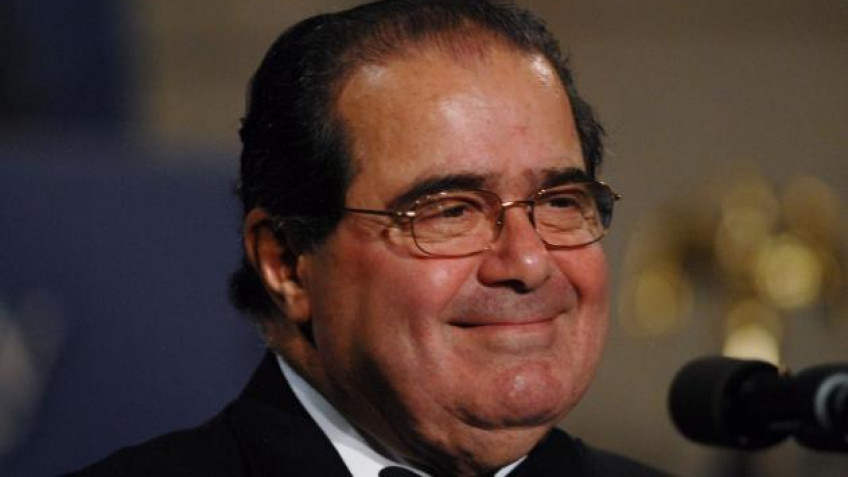Hawaii Environmentalists Invoke the Late Arch-Conservative in Legal Fight with the EPA
Environmentalists suing polluters such as energy companies are looking at the reasoning of Antonin Scalia, the famed arch-conservative who served on the Supreme Court for almost three decades.
Nineteen days after an appellate court cited Scalia repeatedly in an opinion about a Hawaii county dumping treated sewage into injection wells that eventually flow into the Pacific Ocean, Scott Pruitt’s EPA sought to undo the impact of the conservative justice’s words.
David P. Ross, who worked to help polluters before Trump nominated him to head the EPA’s Office of Water, is asking for public comment on whether the EPA should “consider clarification or revision” on the EPA’s previous statements about protecting groundwater.
“We are very concerned,” said Thomas Cmar, an attorney for Earthjustice.
Scalia, who died in 2016, was known for consulting dictionaries that were out-of-date by a century or more like Samuel Johnson’s 1773 tome to buttress his opinions. Scalia dissented in cases involving same-sex marriage and the Affordable Care Act. The Hawaii opinion and a brief that the EPA under Obama wrote in that case cite a 2006 opinion from Scalia about Michigan landowner John Rapanos.
“Justice Scalia would be proud,” Cmar said.
Environmentalists are using Scalia’s reasoning to try to expand enforcement of the Clean Water Act to apply to groundwater pollution by electric companies, factory farms and sewage treatment facilities.
In the Hawaii case, the Ninth Circuit Court of Appeals upheld a lower court ruling that Maui County violated the Clean Water Act with its injection wells. Judge D.W. Nelson quoted Scalia’s reasoning in the Rapanos case.
“…lower courts have held that the discharge into intermittent channels of any pollutant that naturally washes downstream likely violates” the law, Scalia wrote.
The traditional view is that the Clean Water Act protects against pollution discharged into “navigable waters” without a permit, not pollution traveling through groundwater. Supreme Court Justice Anthony Kennedy wrote in a separate Rapanos opinion that the Clean Water Act also protects water with a “significant nexus” to navigable waters.
The Trump administration may use other parts of Scalia’s reasoning in the Rapanos case to try to unwind the Clean Water Rule enacted during the administration of former President Barack Obama.
But Scalia’s reasoning cited in the Hawaii case, sometimes described as conduit theory, has also helped lead to wins for environmentalists in groundwater cases in North Carolina, Virginia and Tennessee. Courts in other states such as Kentucky have rejected the theory.
ACTION BOX/What You Can Do About It
Comment online by May 21 about whether the EPA should be protecting our country’s groundwater from polluters. Please use the Docket ID No. EPA-HQ-OW-2018-0063.
Tell Scott Pruitt your thoughts via his Facebook and Twitter sites. His email is [email protected]. His phone number is 202-564-4700.
Write him at USEPA Headquarters / William Jefferson Clinton Building / 1200 Pennsylvania Ave. NW / Mail Code: 1101A / Washington, D.C. 20460.
Earthjustice can be reached at 800-584-6460 or [email protected].




